Which Bariatric Surgery Is Most Successful?
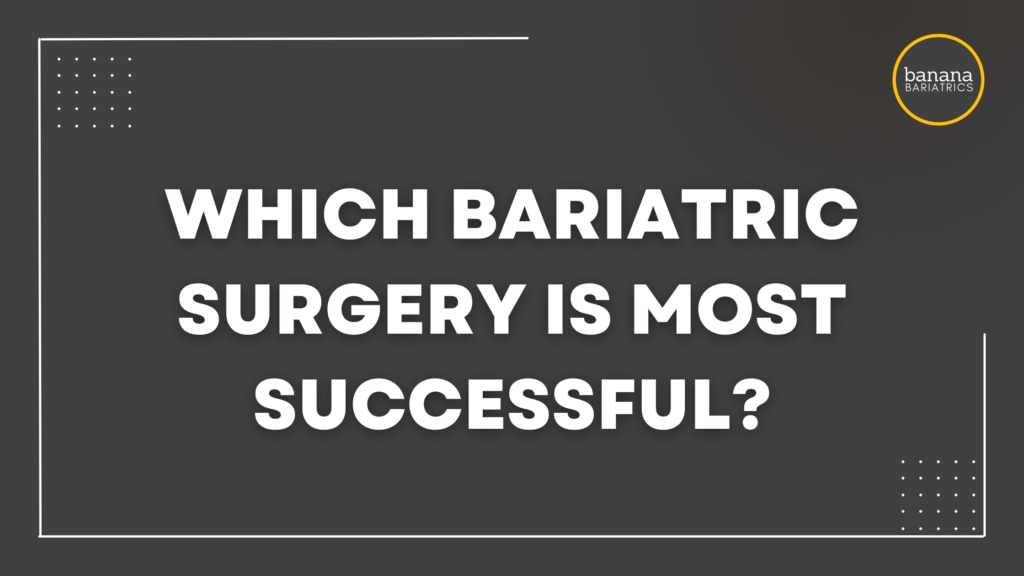
Amongst the current types of surgeries bariatric surgeons are performing (ie: sleeve, bypass, switch, and SADI-S), there are varying degrees of percentage of excess weight that is lost. While there is data to show that the more mal-absorptive procedures (ie: switch / SADI) have larger degrees of excess weight loss, which bariatric surgery is most successful honestly boils down to your overall development of long-term consistency of healthy behavior changes. Your journey as a bariatric patient does not end after the first 6 months after surgery or even your 1st year. In order for bariatric surgery to be successful, it is important to ensure that you are establishing healthy habits on a consistent basis and that you recognize that surgery is a tool alongside these behavioral changes. Surgery is not 100% of the puzzle that will have you losing weight and keeping it off, forever. Therefore, let’s break down how to be consistent in your efforts toward building a healthier lifestyle to help you succeed after bariatric surgery.
Defining Your Goals After Surgery
When you’re trying to work hard on your goal(s) after surgery, I challenge you to be an under-achiever. Go for the low-hanging fruit. The relatively “easy” goal(s).
What do I mean by this?
Compare these two exercise goals together (considering someone who is not an active exerciser yet):
- Goal A) “I’m going to exercise 5 days a week at the gym for 45 minutes and hire a Personal Trainer.”
- Goal B) “I’m going to exercise 2 days a week in my basement for 15 minutes with the weights I have and free YouTube workouts.”
Does Goal A) sound impressive? Yes. Would you – assuming you are currently not an active exerciser yet – realistically stick with this goal long-term? Likely not.
Instead, I encourage you to choose a goal more in alignment with Goal B). Now at first, you may doubt the effectiveness of starting with a goal like this. However, the goal is focused around first fixing the kinks and barriers that are getting in the way of your exercise routine to start with. With the removal of time and intensity, you’ll have less barriers in the way of forming a consistent habit around moving your body more each week. You’ll be more likely to get started and to stick with it.
Once you’re able to find 2 days a week of 15 minutes to exercise, and you focus on never giving up on those 2 time slots each week, then you can increase the frequency of days you work out, the duration of your exercise, and the intensity by which you exercise. AKA- you can then dial up your over-achiever-ness.
Eliminating The All-Or-Nothing Mindset
Do you think of things in black and white with your health goals? Are things to you all-or-nothing? Or do you define your progress as being “perfect,” or “I’m a total failure”?
If so, we need to have a little “heart to heart.”
These are very destructive thoughts to tell yourself if you DO want to be successful long-term.
Life after bariatric surgery is lifelong. And the surgery itself will never help you lose and maintain all of your weight loss. Therefore, you need to take your progress and goals in stride and focus on decisions you make that feel good– that make you feel healthier and in more control of your lifestyle.
There will be times in your life when things feel completely out of your control. And with an all-or-nothing headspace, it can leave you completely off the bandwagon for a long period of time; unhealthy habits begin sneaking into your lifestyle more consistently, and that’s when regain starts to happen.
However, that does not need to be the end of your story and you don’t necessarily need a revisional surgery to get back-on-track with losing weight again.
The first place you need to start is by listening to the thoughts you are telling yourself, day in and day out.
Can you replace some of those destructive thoughts we just covered above with any of these listed below?
- Progress is progress, no matter how small.
- Small changes add up to big results.
- I AM in control of my decisions around food. Food is NOT in control of me.
- Progress over perfection.
- One day at a time.
By telling yourself any of these things, you are allowing yourself grace. It’s okay not to be perfect. (Please, reread that).
When you zoom out and look at the big picture, one bad day, one bad week, or even one bad month – relative to a year- does not make you a failure. Focus on staying as healthy as you can for most hours of the day, more days of the week, and more months of the year (than not), and you will still be making progress on your health goals.
Lean in to behaviors and lifestyle changes that FEEL GOOD- that make you proud of yourself the next morning. Hold on to that feeling and don’t let it run away from you too fast. The more you can embody that feeling and remember what it feels like, the easier it will be to make decisions that are in alignment with changes that get you back to feeling that way again.
It’s Never Too Late To Restart
The only time you fail, is when you give up on yourself. You are NOT a failure if you have experienced weight regain after surgery. While having a second surgery may kick-start the process, long-term success after surgery will still boil down to the same “un-sexy” lifestyle and nutritional choices that you commit to more days than not. Therefore, choose a health goal that is easy to achieve, and focus on building your confidence with doing it consistently every week. From there, dial up the duration, frequency, and intensity of how you accomplish this goal before moving on to another goal. Stay off the scale for a bit to avoid feeling discouraged, and lean into changes that make you feel proud of yourself and overall healthier. Time will pass by anyway, so stick with it and stay committed because you WILL eventually feel more in control of your health goals again.
Need Support With Weight Regain?
Weight regain after surgery is common and occurs in ~30% of patients…but it doesn’t have to be the “end all” of your weight loss surgery journey!
Our FREE Weight Regain Resource will help you:
- Learn the reasons why you may experience weight regain after surgery
- Identify unhealthy habits that can lead to weight regain
- Find additional support and accountability with getting back-on-track with your weight loss


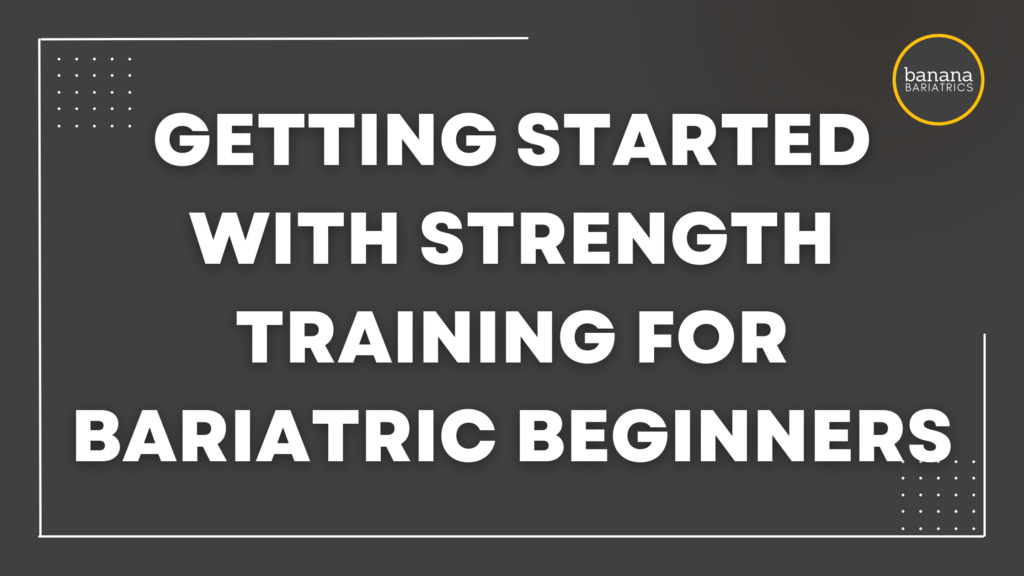
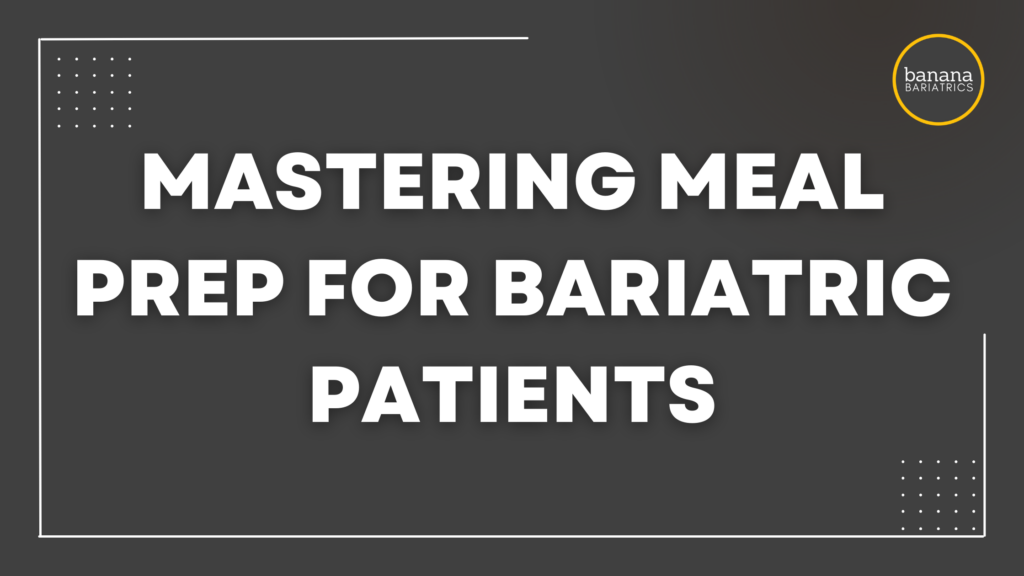

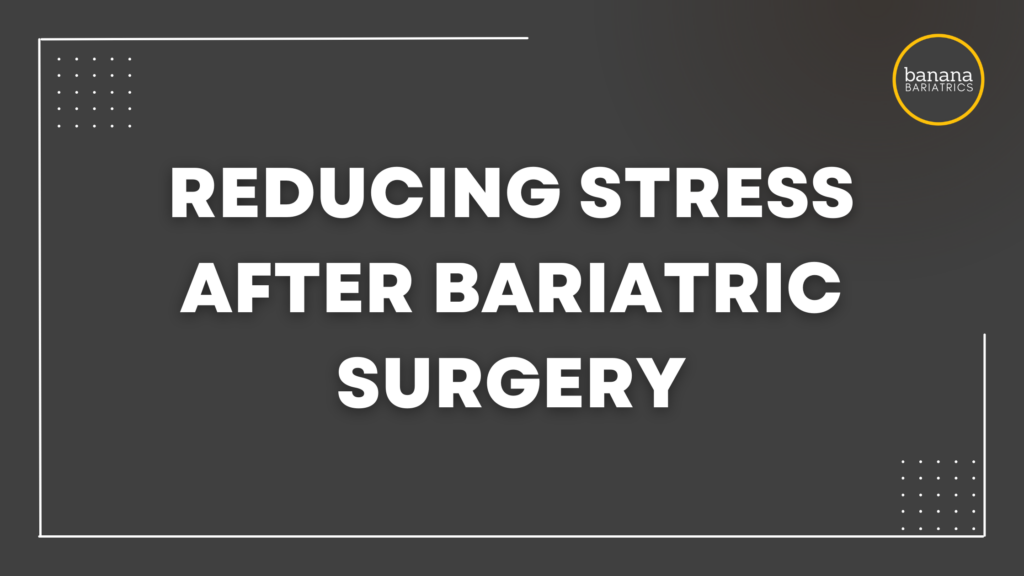
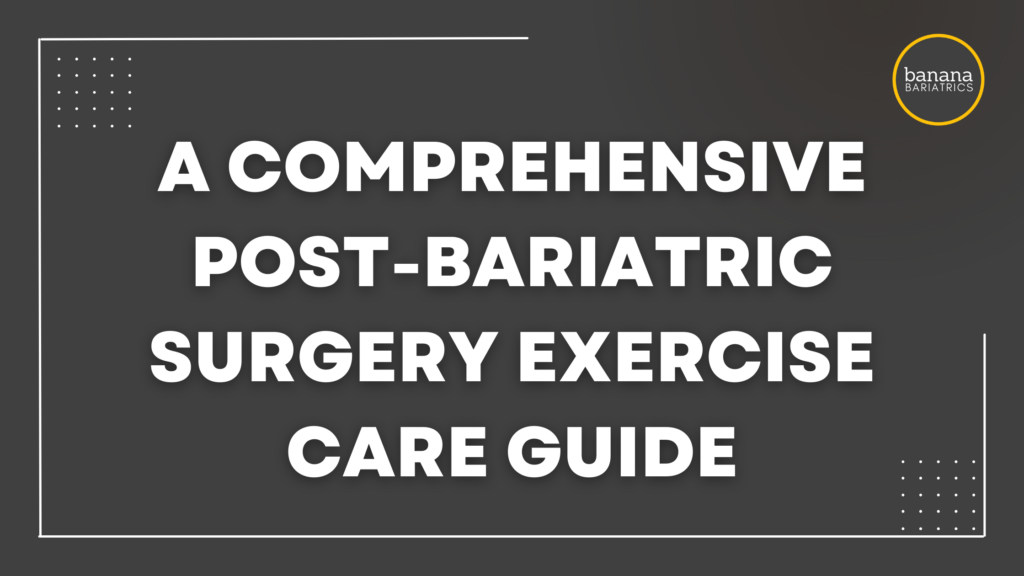
i am trying the meal PLANNING and grocery shopping list at once. I don’t do meal prepping because my husband does not like meals that are made ahead of time.
It could be a time saver for you! Every minute matters ;-). Let us know how it goes!